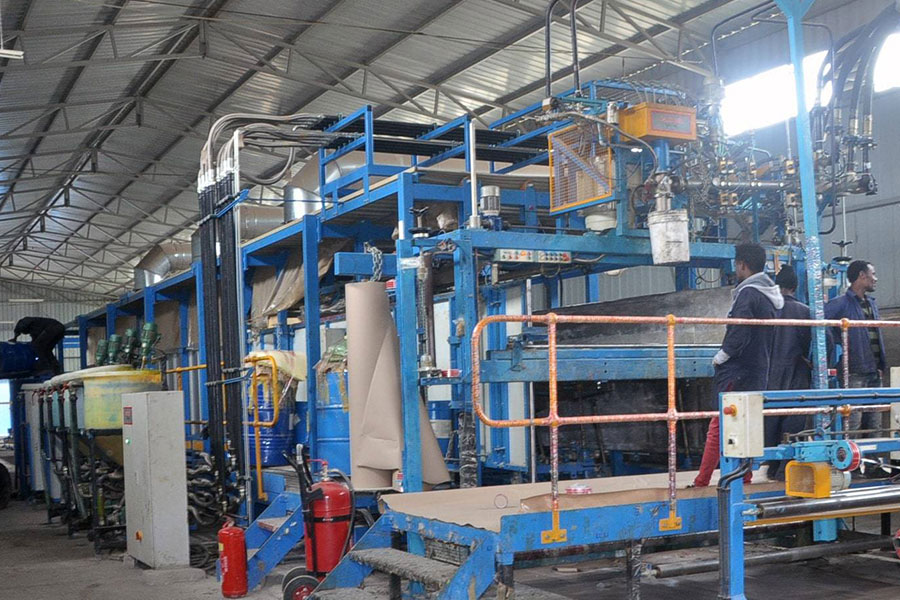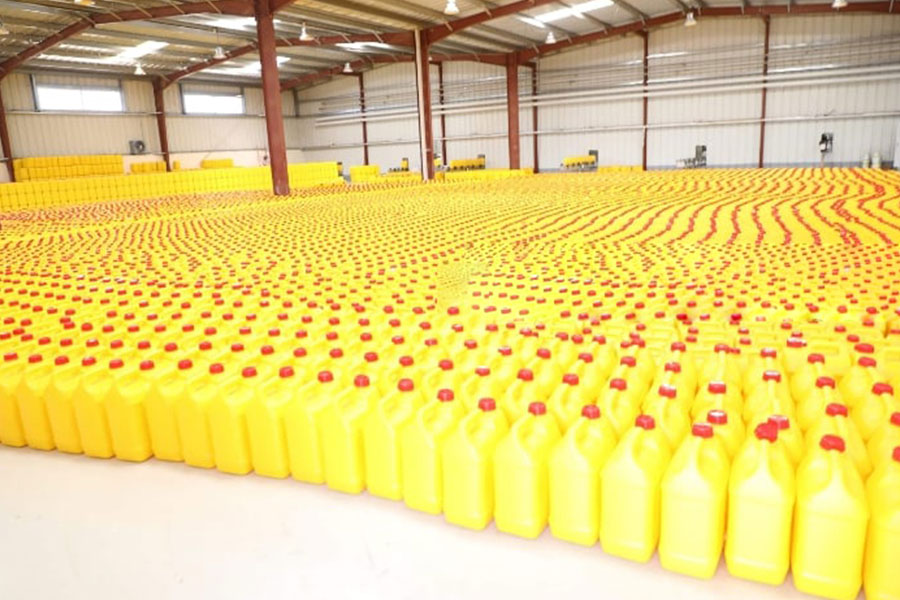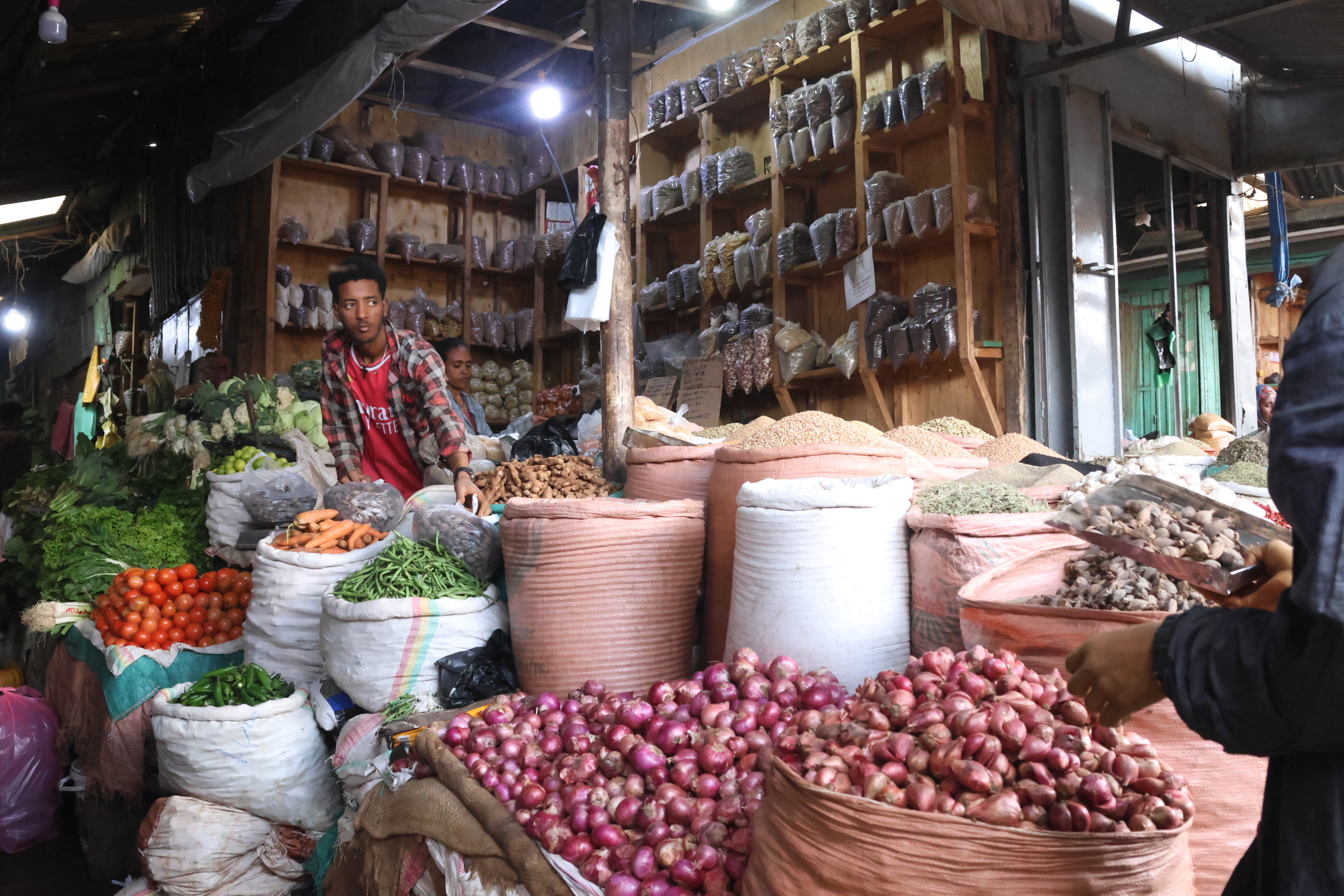
Fortune News | Sep 16,2023
Exporters of live animals from Ethiopia cannot ask for less than a threshold price set last week by officials of the Ministry of Trade & Regional Integration. Cattle weighing more than 320Kg will not be sold for less than 750 dollars, and sheep and goats scaling over 25Kg will receive more than 85 dollars and 80 dollars, respectively.
The order was signed by Gebremeskel Chala, minister for Trade & Regional Integration, to remain enforced up until mid-April 2022.
The Ministry determined the threshold value after a study conducted alongside the central bank and the ministries of Agriculture and Revenues, revealed a continued decline in foreign exchange earnings from cattle exported.
Over the last decade, earnings from the export of live animals have shown a dramatic decline. A decade ago, Ethiopia had earned a record 200.7 million dollars, shipping close to 700,000 animals overseas, with cattle accounting for a sizeable proportion. The revenues plummeted to 44.1 million dollars last year. The number of animals shipped also receded below 100,000.
For a country that is often touted as home to the largest livestock population on the continent, the figures are a far cry from potential earnings. There are an estimated 59 million heads of cattle; sheep and goat populations stand at 7.5 million and 13.2 million, respectively. Though there are 41 licensed livestock exporters, less than half are currently active.
Desenet Belay, director of livestock marketing at the Trade Ministry, blames the growing contraband trade and rampant under-invoicing observed among livestock exporters.
“We took international commodity exchange figures and domestic prices into consideration," said Desenet. “The threshold can be revised if the variables in the market change."
Up to 80pc of the illicit financial outflows leaving Ethiopia, estimated to have reached 30 billion dollars, has been channelled through what experts call "trade mispricing," a technical term for under-invoicing. The amount of forex leaving the country in the form of illicit financial outflows represents close to 23pc of the total value of its trade.
Unless it is resolved, under-invoicing could cause capital flight, Desenet warns.
Industry players, however, point their fingers at other factors contributing to the decline of export earnings from the livestock sector. The marketing system is cumbersome and underdeveloped, according to Moges Haile, president of the Livestock Traders Association (LTA). The trade lobby has 560 members under its wing.
Exporting livestock involves meandering supply chains and many actors, including cooperatives, traders, intermediaries and exporters. Pastoral and agro-pastoral areas such as Borena, Somali and Afar are the primary source of sheep, goats and cattle.
Hayder Kemal, a livestock exporter, sees the main hurdle in the lack of commitment from the government to use livestock resources, stopping cross-border trade. He exported half a million dollars worth of camels to Egypt last year.
Officials at the Ministry of Trade agree with Hayder.
“There isn't an institution that monitors livestock trade and export," said Desenet.
His point is illustrated by the constant reshuffling of the federal offices overseeing livestock trade and export. Five years ago, it was the Ministry of Trade before the oversight went to the Ministry of Agriculture and then back again two years ago. Cross-border livestock trade overtook the legitimate export. Live animals from Ethiopia cross to neighbouring countries of Djibouti, Somalia, Kenya and Sudan, then exported to markets in the Middle East through formal channels.
Export earnings might have plunged in Ethiopia, but Somalia has seen figures rise from 162.5 million dollars in 2010 to around 280 million dollars last year. Djibouti, home to a cattle population of 40,000, earned 26 million dollars two years ago, five million dollars more than Ethiopia had in the same year.
The Trade Ministry's study reveals that close to 1,200 animals cross borders each day. It estimates the country loses 1.5 billion Br annually due to the illicit trade. The border areas of Wuchale, Dewaele and Galafi in the east; and Dolo, Odo and Moyale in the south have been identified as corridors for the illicit cross-border trade.
Negassie Ameha (PhD), lecturer of animal science at Haremaya University, argues that setting a threshold price for export cannot be the solution. The focus should rather be on improving animal data management and information tracking systems, which are inadequate for designing policies and overcoming problems, says Negassie.
There is also a poor animal health management and certification regime. There are 13 livestock health control and seven quarantine centres, where live animals stay for 30 days.
“They receive vaccinations at the quarantine centres,” said Tegegework Mekonnen, senior quarantine expert at the Ministry of Agriculture. “However, the existing facilities are very few considering the livestock population."
Desenet recognises that many factors contribute to the problem but says solving them all at once is impossible.
“We've got to start somewhere,” he told Fortune.
PUBLISHED ON
Jan 29,2022 [ VOL
22 , NO
1135]

Fortune News | Sep 16,2023

Radar | Mar 09,2019

Fortune News | Mar 27,2021

Radar | Aug 20,2022

Radar | Aug 29,2020

Fortune News | Apr 17,2021

Fortune News | Dec 23,2023

Agenda | Apr 19,2025

Fortune News | Nov 23,2019

Radar | Nov 11,2023

Dec 22 , 2024 . By TIZITA SHEWAFERAW
Charged with transforming colossal state-owned enterprises into modern and competitiv...

Aug 18 , 2024 . By AKSAH ITALO
Although predictable Yonas Zerihun's job in the ride-hailing service is not immune to...

Jul 28 , 2024 . By TIZITA SHEWAFERAW
Unhabitual, perhaps too many, Samuel Gebreyohannes, 38, used to occasionally enjoy a couple of beers at breakfast. However, he recently swit...

Jul 13 , 2024 . By AKSAH ITALO
Investors who rely on tractors, trucks, and field vehicles for commuting, transporting commodities, and f...

Nov 1 , 2025
The National Bank of Ethiopia (NBE) issued a statement two weeks ago that appeared to...

Oct 25 , 2025
The regulatory machinery is on overdrive. In only two years, no fewer than 35 new pro...

Oct 18 , 2025
The political establishment, notably the ruling party and its top brass, has become p...

Oct 11 , 2025
Ladislas Farago, a roving Associated Press (AP) correspondent, arrived in Ethiopia in...